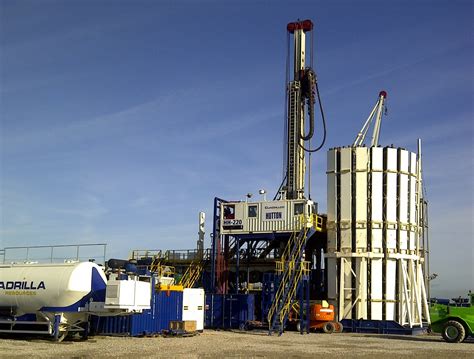The government this morning tore up a manifesto commitment, rescinding Britain’s 2019 moratorium on onshore fracking for gas, citing the need to increase national supply.
Energy secretary Jacob Rees-Mogg this morning announced the move, at the same confirming imminent definition of North Sea blocks leading to an expected 100 or more exploration licences.
The minister declared: “In light of Putin’s illegal invasion of Ukraine and weaponisation of energy, strengthening our energy security is an absolute priority, and – as the Prime Minister said – we are going to ensure the UK is a net energy exporter by 2040.
“To get there we will need to explore all avenues available to us through solar, wind, oil and gas production – so it’s right that we’ve lifted the pause to realise any potential sources of domestic gas”.
On fracking, attention will be paid, D-BEIS promised this morning, to local sentiment concerning disruption. Defending his decision against strong Conservative reservations in the Commons, the former Brexit opportunities minister failed to define local consent, instead hinting at bribes to buy off local objections.
Whitehall was silent too on how onshore frackers or extractors of North Sea fossil fuels could be compelled to sell their output in Britain, when better prices were likely to be offered on international markets.
After three national consultations, the fracking moratorium was introduced in November 2019 when drilling by developer Cuadrilla in Lancashire – pictured – was accompanied by earth tremors of magnitude 2 and above.
The Conservatives’ December 2019 manifesto pledged to honour the suspension until “the science shows categorically (fracking) can be done safely”. Studies by the British Geological Survey as recently as April this year have been inconclusive as to whether tremors could be avoided.
Only three test wells to date have been hydraulically fracked in Britain, Rees-Mogg stated this morning.
He claimed publication now of the BGS studies indicated “we have limited current understanding of UK geology and onshore shale resources, and the challenges of modelling geological activity in relatively complex geology sometimes found in UK shale locations”.
New premier Liz Truss indicated her support for shale gas extraction during the six-week Conservative leadership election.
Fracking has low support among voters, government figures confirm. Published in April, D-BEIS’s most recent tracking poll of popular attitudes to new energy technologies reported 45% opposition nationally, including 22% strongly opposed. Only 17% support the method, including 4% voicing strong support.
Besides the possibility of tremors, opponents’ further objections to UK fracking include
- Fast depletion rates of wells, compelling frequent new bores or relocation of ‘pads’,
- heavy consumption of water often tankered down rural lanes around the clock
- pollution of aquifers with ‘produced water’
- rights to subterranean gas belonging to the crown, and not as in the USA to landowners
Often cited as a success, fracking in the US was funded in its early stages by unprecedented levels of debt. Aubrey McClendon, CEO of Chesapeake Energy died in March 2016, the sole occupant of an SUV which collided at over 80 mph with an Oklahoma highway bridge. McClendon had recently been indicted for fixing of land use bids in the five years to 2012.
Reaction from Friends of the Earth was predictably eviscerating of the government’s backtracking. Its head of energy campaigning Danny Gross said: “Ripping up rules protecting people from fracking would send shockwaves through local communities.
“This announcement suggests that the government is planning to throw communities under the bus by forcing them to accept ‘a higher degree of risk and disturbance’.
“If the government caves into the fracking industry and allows them to cause larger earthquakes, it will further undermine confidence that fracking can be done safely”, said the Friends of the Earth spokesperson.
For FrackFree Lancashire, Claire Stephenson added: “Fracking is a failed technology in the UK and should absolutely be confined to the past. We’ve witnessed more than 10 years of attempts to jack gas out of the ground in Lancashire, with no progress. There have, however, been uncontrollable earthquakes and structural damage – almost 200 reported claims”.




